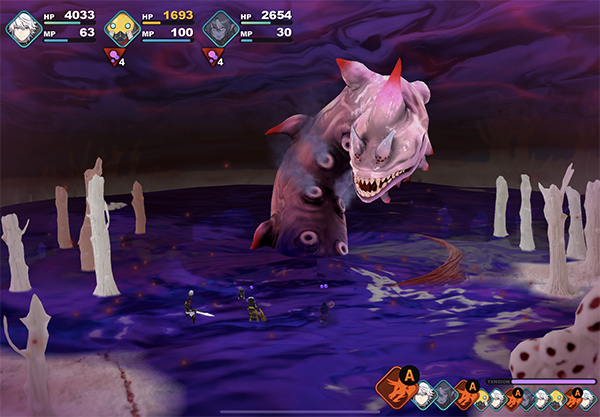Welcome back readers.
We’ve got a shorter issue for you this week, with nine picks from (mostly) the past week. If you’re looking forward to a very, very long issue, the submission window for our end-of-year review is currently open. See the announcement post for details, and join our Discord.
The game dev project I linked last week, about the 1948 Nakba, currently being crowdfunded by Palestinian game dev Rasheed Abueideh, recently crossed 50% of its goal. If you haven’t already, I think it’s worth your time to take a look.
This Week in Videogame Blogging is a roundup highlighting the most important critical writing on games from the past seven days.
Critical Culture
Our opening section this week examines how both games and our critical practices of writing about them are entangled with identity, culture, and ideology, in ways both good and not-so-good, intentional and inadvertent.
- Light Enough Skin and White Enough Voices: The Problems and Contradictions of Racial Diversity in Final Fantasy XVI | Zweiteturm
Leanne situates Final Fantasy XVI‘s problems of race in Square Enix’s longer-term push for greater verisimilitude in its character rendering without being willing to mark its games with anything that could be traced back to real-world cultures (Further Reading – Nicanor Gordon on antiblack stereotypes in FFVII Rebirth and beyond). - Citizen Sleeper 2 wants you to fail | Matt Horton
Matt Horton brings together Jesper Juul, Jack Halberstam, Bo Ruberg, and Gareth Damian Martin’s own thoughts to better understand the ludic appeal of failure (Further Reading – Phoenix Simms’ thoughts on failure in indie game OVERWHELM). - More Archival, Less Criticism: Thoughts on “Antifascist Media Criticism”
Kastel continues an ongoing conversation by asking whether games criticism is an effective foundation for antifascist practice in the first place (Further Reading – GwG’s Five Theses on Antifascist Games Criticism and Kaile Hultner’s response).
“Whether we like it or not, we are all in a living history. What we write can be preserved and erased. I don’t know if this is antifascist enough for my liking, but this is a start. For my part, I’ll be writing more about trans and disability fiction not just because I find them interesting and worth shouting out but I want to preserve these books in my own way.”
Party Chat
We’ve got a bunch of writing this week on RPGs and adventure games so I’m splitting them into two sections. This first section deals more with histories and legacies at the industry and genre levels.
- Crowther’s Adventure and Mirkwood Tales | Renga in Blue
Jason Dyer re-examines Will Crowther’s Adventure with context from a recently-excavated Dungeons & Dragons campaign he participated in around the same time. - Go Make Some Friends – Dragon Quest II and Dragon Quest III HD-2D Remake | Pixpen
Sam Howitt chronicles the early steps to Dragon Quest finding its vibe (Further Reading – Art Maybury on the original Dragon Quest‘s particular and peculiar relationship with legacies). - Fantasian Neo Dimension: They do (not) make them like they used to | Willa Writes
Willa Rowe considers Fantasian as a counterpoint to the triple-A state of Final Fantasy and Square Enix more broadly.
“Sakaguchi is clearly a developer reflecting on his relationship with the series he will be forever linked to, even if it has been a pain point for two decades. He has had the time to reflect on what these iconic games mean to him as a person and a creator. Rather than simply embracing or rejecting this part of his life, Fantasian is a reflective project that seeks not just to accept the past but to build on it.”
Dread Wolf
If I’m being honest, these next two selections also deal a bit with legacies–but also narrative agency and intentional play. They are also both about Dragon Age.
- Dragon Age Doesn’t Need To Respect Your Choices To Tell A Good Story | Inverse
Robin Bea makes the case that the BioWare of today deserves a clean break. - Dragon Age is Forever | Unwinnable
Emily Price contemplates time well spent a decade later in Dragon Age: Inquisition (Further Reading – Ash Parrish revisits Dragon Age: Origins a decade after its release).
“Playing Inquisition for me is like having breakfast with someone I see every day. We might eat the same thing and tell the same stories, but talking about nothing is just an excuse for the interaction to happen at all. See how the light plays on their smile lines; how the same jam you eat with your yogurt still tastes good. I’m still capable of finding new aspects of something despite how often I’ve seen it before.”
Critical Chaser
Spurnedle.
- Wordle and I Are Breaking Up | Electric Literature
Gail Mackenzie-Smith promises it’s not them.
“I wish you the best of luck and hope we can still be friends. An occasional breakfast or lunch would be nice. You should meet Spelling Bee and Sudoku sometime. They’re a lot of fun, and they last a lot longer.”
Subscribe
Critical Distance is community-supported. Our readers support us from as little as one dollar a month. Would you consider joining them?
Contribute
Have you read, seen, heard or otherwise experienced something new that made you think about games differently? Send it in!


